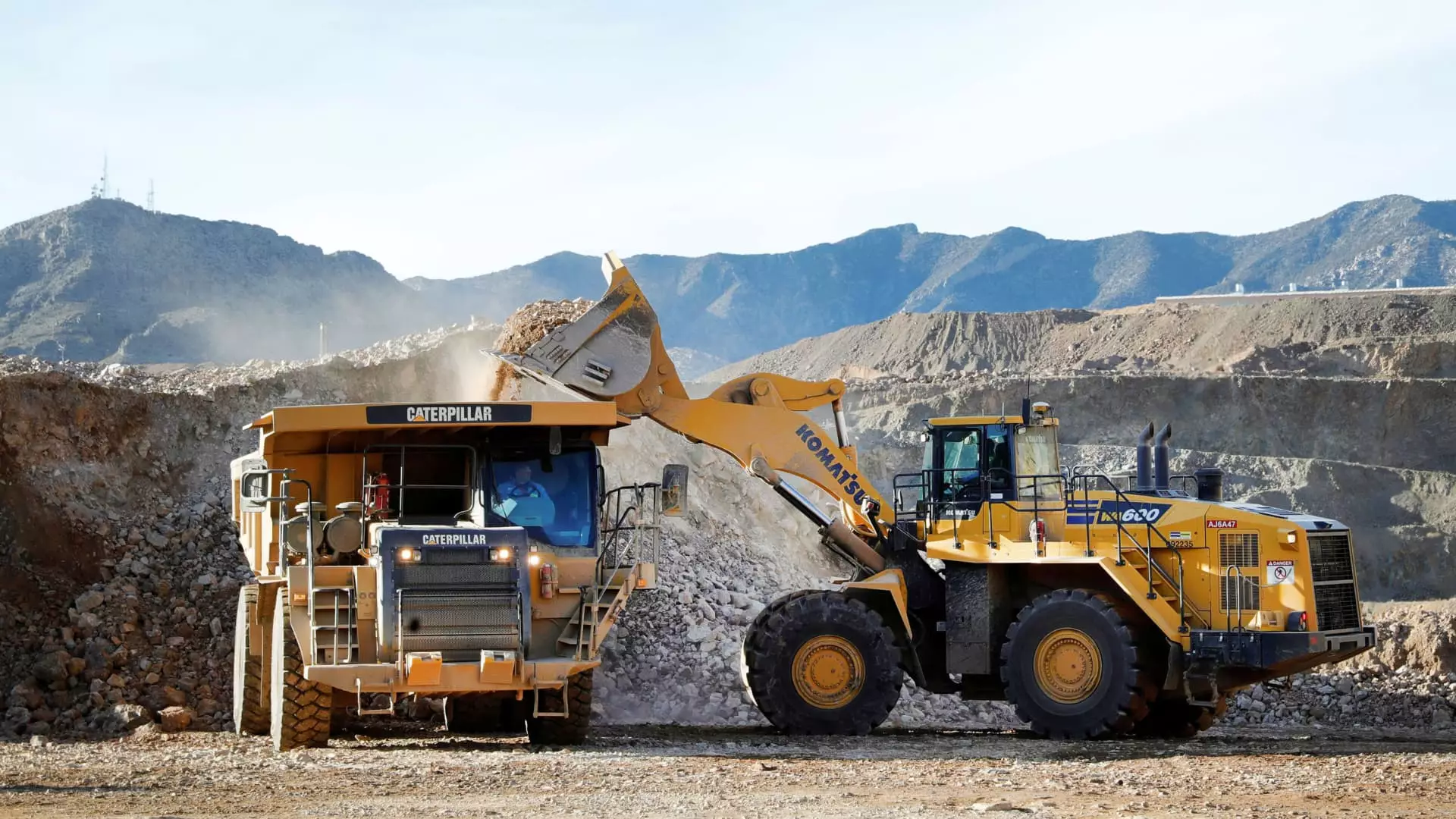In an era dominated by geopolitical strife, the strategic importance of rare earth minerals has never been more pronounced. The recent upgrade of MP Materials by Morgan Stanley signals not only a shift in market perspective but also highlights the increasing tension between the United States and China. The stakes are high, and the implications for both national security and industrial independence are profound. With a looming crutch on foreign entities—especially China—that dominates the rare earth refining market, America stands at a critical juncture where it must reevaluate its dependency on external suppliers.
MP Materials: America’s Bright Spot
At the heart of this new narrative lies MP Materials, the singular operating rare earth mine in Mountain Pass, California. Morgan Stanley’s bold prediction of a 32% upside places MP Materials at the forefront of an emerging domestic supply chain that could weaponize America’s mineral independence. Analysts emphasize that the miner holds a strategic advantage in being “the most vertically integrated rare earths company ex-China.” For a nation clamoring for stability in the supply of critical minerals, MP Materials is not just a company; it is a potential bastion of economic resilience.
The reality is stark: China’s recent export restrictions serve as a wake-up call. With critical minerals being stifled on one end, America must bolster its domestic production capabilities. MP Materials could easily become a linchpin in this scenario, pivoting the U.S. toward a sustainable and self-sufficient future.
The Promise of Innovation
As the world pivots toward electric vehicles and clean energy, the demand for rare earth elements is projected to skyrocket. MP Materials is not resting on its laurels. They are actively developing an entirely domestic supply chain, setting out ambitious plans to produce magnets essential for electric vehicles and wind turbines. This is where innovation and necessity intertwine, presenting America with both a challenge and an opportunity. If MP Materials begins commercial production of these crucial components, it positions itself—and the entire nation—at the forefront of a technological revolution.
However, it is essential to recognize the challenges that lie ahead. Morgan Stanley’s prediction of negative free cash flow for MP this year and into 2026 raises eyebrows. For all its promise, the path is fraught with risk. The balance sheet may appear robust, but the road to profitability is long and uncertain. Despite this, the potential for an economic renaissance in the rare earth sector cannot be understated.
National Security: The Overarching Concern
The urgency of this situation extends beyond economic implications; it encapsulates national security. Amid rampant trade disputes and erratic tariffs from adversarial regimes, the vulnerabilities of relying on foreign rare earth supplies are magnified. The Defense Production Act’s recent modifications allow the federal government to intervene in the rare earth market, potentially valuing domestic sources significantly higher than their foreign counterparts. In doing so, America can not only protect its economic interests but also enhance its stance in global geopolitics.
In this valiantly unfolding narrative, MP Materials is more than an investment opportunity; it is a symbol of what is at stake. The company’s ability to navigate these tumultuous waters could redefine America’s place in the world as a leader in sustainable technology and economic self-sufficiency. If fully realized, this strategy could foster an environment where American innovation thrives—uniquely and independently. Rather than relegating itself to the sidelines, America has the chance to reclaim its narrative in the critical minerals arena, making MP Materials an indispensable player in its unfolding story.

